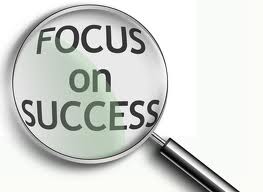 A while back, I wrote a blog about how hard it is to win in today’s business environment. What with global competition, low barriers to entry for most industries, uncertain economic conditions, and the constant need to innovate, achieving a position of market leadership seems tougher than ever.
A while back, I wrote a blog about how hard it is to win in today’s business environment. What with global competition, low barriers to entry for most industries, uncertain economic conditions, and the constant need to innovate, achieving a position of market leadership seems tougher than ever.
But while talking on this subject with a small group of CEOs and business owners, one of them shared a different point of view. I made the statement that winning is hard, and this particular CEO laughed and said in his beautiful southern drawl, “Holly, winning ain’t hard; all you gotta do is execute. Getting done what you really need to do is the hard part!”
You know what? He’s right! Proper execution is hard to do because it requires a high degree of focus and discipline. And in today’s world of constant interruptions, these leadership qualities can be hard to come by.
The biggest challenge with maintaining focus is the daily onslaught of distractions that make it easy to get off track. All the technology that was supposed to make our lives easier has in fact has made it more complex. Smart phones, tablets, email, voice mail, Twitter, Facebook – the list goes on and on. These technologies all carry a sense of urgency that makes it difficult to not respond. When we do, our attention gets diverted from the more important task at hand. And once off track, it can be hard to get back on.
Often because of technology, we also have more opportunities than ever, which is where the need for discipline comes in. A company that runs too many races ends up winning none. That’s why I constantly stress the importance of getting clear on winning. Without that clarity, maintaining discipline becomes nearly impossible because you don’t know what to aim for.
This doesn’t mean you ignore new opportunities as they arise. It does mean putting decision criteria in place to evaluate new opportunities against, and being more intentional in where you invest your time and attention.
To stay focused in order to execute, I recommend the following:
Chunk it down.
Use “breakthrough modeling” to partition your plan into 12-week, bite-size chunks. This involves creating a framework of action steps that map out quarter by quarter what it will take to achieve interim goals along the way to reaching your ultimate destination. For a quick overview of this process see my blog Breakthrough Modeling. https://thehumanfactor.biz/the-short-pass-approach-to-winning-in-business
Since we’re barely into the new year, I suggest focusing on the next 12 weeks by asking questions like: What operating goals and strategies can we achieve in this timeframe? What resources and capabilities must be in place to support getting there? What do we need to focus on to make progress? Who will be accountable for achieving the interim goals?
Establish priorities.
Now that you know what to focus on, make a list of all the things you do and identify which ones contribute most to achieving those interim goals. When interruptions and/or unexpected work occur throughout the day, ask one simple question: how important is this compared to what I need to get done? If it’s important, take care of it. If not, delegate or defer.
Get good at delegating.
In terms of losing focus, doing the work of others comes in a close second to distractions. This typically occurs when you don’t have a clear idea of what you need to be doing, you don’t delegate well, or you don’t have enough confidence in others to delegate. Delegating well is one of those things that will make a difference a year from now. Get good at it so you can get things off your plate that others can, and should, be doing.
Focus on staying focused.
Start each day by reviewing your short- and long-term implementation goals. Then organize your day around the tasks and activities that support accomplishing them. Five or 10 minutes is all you need. Throughout the day, use visual reminders to bring you back on track when interruptions pull you away.
If you think focus isn’t an issue for today’s leaders, consider this: Daniel Goleman, the bestselling author of Emotional Intelligence, has come out with a new book on this very subject. Titled Great Leadership Requires Focus, the book defines the leader’s primary task as “guiding attention,” and offers insights on how leaders can get themselves and their employees more focused. I haven’t read it yet, but it’s #1 on my list!
Call to action: Break your plan into 12-week segments and set actionable interim goals for each quarter.








